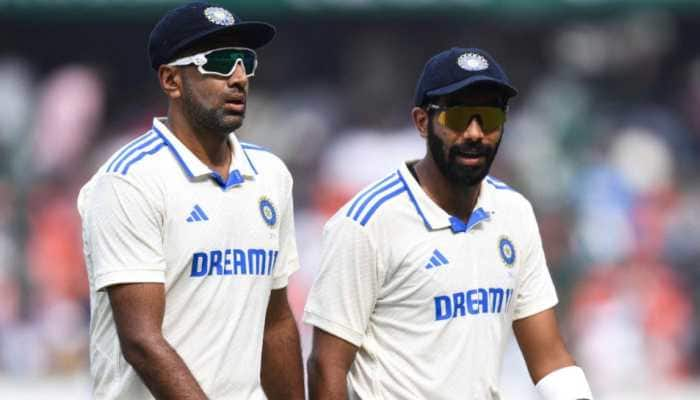Pak Court Suspends Imran Khan's Conviction, 3 Year Sentence In Toshakhana Case
The Islamabad High Court (IHC) on Tuesday suspended Pakistan Tehreek-e-Insaf (PTI) Chairman Imran Khan's sentence awarded to him in the Toshakhana case
Trending Photos
)
New Delhi: Pakistan's former prime minister Imran Khan, who was imprisoned for three years in the Toshakhana corruption case, got a major relief as the Islamabad High Court suspended his sentence and conviction on Tuesday and ordered his release. The verdict, which was awaited eagerly, was delivered by a division bench of IHC comprising Chief Justice Aamir Farooq and Justice Tariq Mehmood Jahangiri, who had reserved their decision on Monday.
The IHC has put on hold the decision of the District Court, Khan's party Pakistan Tehreek-e-Insaf (PTI) announced. "The copy of the judgment will be available shortly all we are saying now is that [Imran's] request has been approved," Justice Farooq said.
Khan's legal affairs adviser Naeem Haider Panjotha posted on X, formerly Twitter: "The CJ has accepted our request, suspended the sentence and said a detailed decision would be provided later." The judges reserved the verdict on Monday after the opposing lawyers finished their arguments on the suspension of the three-year sentence given by Judge Humayun Dilawar on August 5.
A trial court in Islamabad found the 70-year-old PTI chairman guilty and sentenced him to three years in prison on August 5. The former cricketer and politician was convicted on charges of illegally selling state gifts received by him and his family during his 2018-2022 tenure. He has also been banned from politics for five years, preventing him from running in an upcoming election.
Khan appealed his conviction within days and the IHC started a formal hearing on August 22. It adjourned the case on Friday after the lawyer representing the Election Commission of Pakistan (ECP) did not appear due to illness. Khan's lawyer Latif Khosa completed his argument on Thursday, claiming that the verdict was given in haste and was full of flaws.
He also urged the court to set aside the sentence but the defence team demanded more time to complete its arguments. Separately, a three-member apex court panel led by Chief Justice Umar Ata Bandial and comprising Justice Mazahar Ali Akbar Naqvi and Justice Jamal Khan Mandokhail is also set to resume hearing petitions against the Toshakhana case.
Earlier, the Supreme Court on Wednesday after hearing various petitions against the Toshakhana case observed that there were 'shortcomings in the judgment of the sessions court. The panel observed that the verdict was given in haste and without giving the right of defence to the accused.
"Prima facie, there are shortcomings in the trial court verdict," the chief justice said. The apex court had also stated it would wait for the IHC hearing before giving its judgment. It resumed the hearing Thursday but adjourned it without fixing any date after it was told that the IHC was holding a hearing.
The Toshakhana case was filed by ruling party lawmakers in 2022 in the ECP, alleging that Khan concealed the proceeds from the sale of state gifts. The ECP first disqualified Khan and then filed a case of criminal proceedings in a sessions court which convicted him and subsequently, Khan was sent to jail.
Khan is currently in Attock Jail following his arrest from his Lahore home. The case alleges that Khan had "deliberately concealed" details of the gifts he retained from the Toshakhana - a repository where presents given to government officials from foreign officials are kept - during his time as the prime minister from 2018 to 2022 and proceeds from their reported sales.
As per Toshakhana rules, gifts/presents and other such materials received by persons to whom these rules apply shall be reported to the Cabinet Division.
According to reports, Khan received 58 gifts worth more than Rs 140 million from world leaders during his three-and-a-half-year stint and retained all of them either by paying a negligible amount or even without any payment.
Stay informed on all the latest news, real-time breaking news updates, and follow all the important headlines in india news and world News on Zee News.
Live Tv







)
)
)
)
)
)
)
)
)
)
